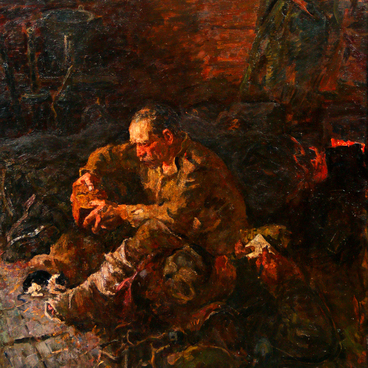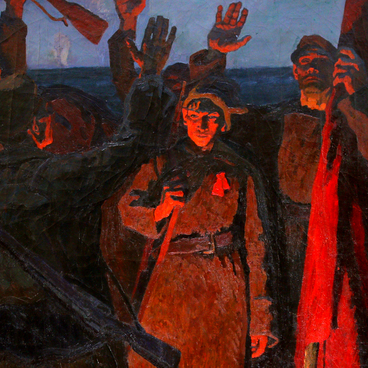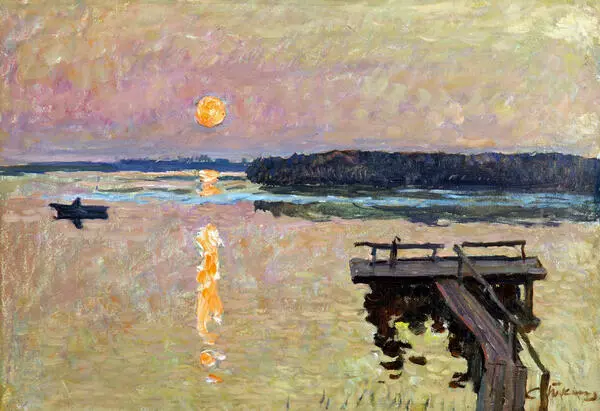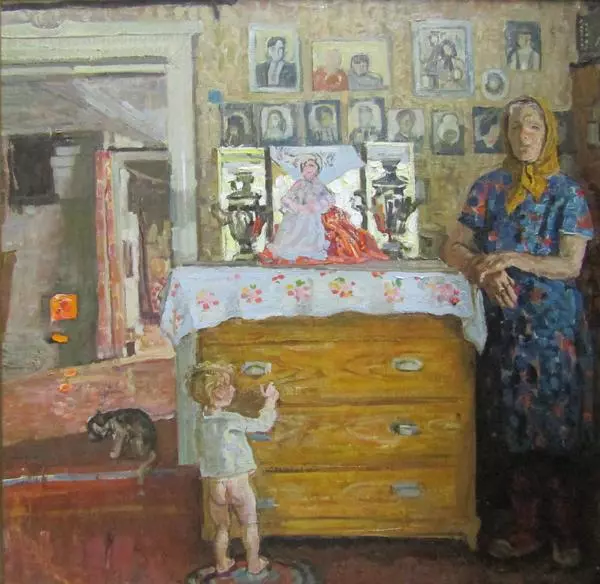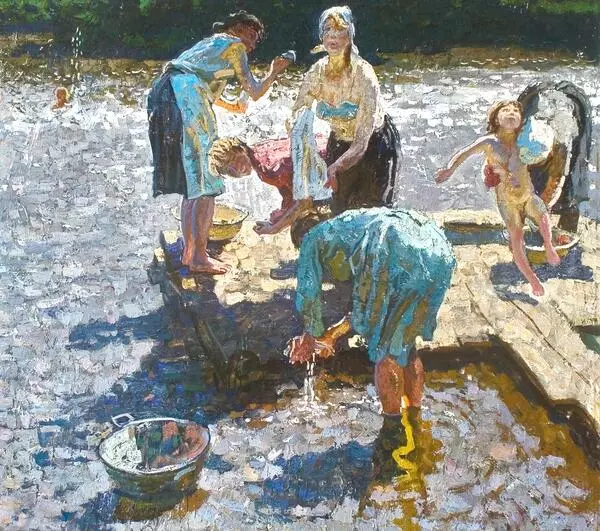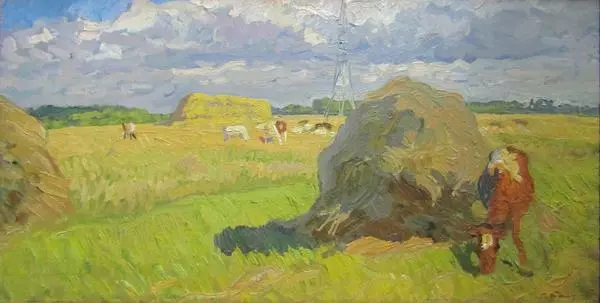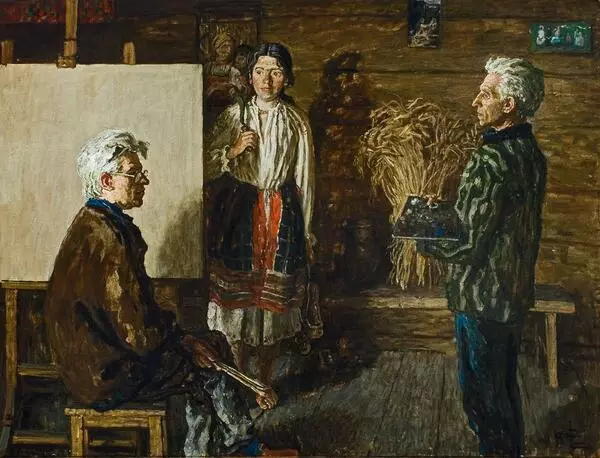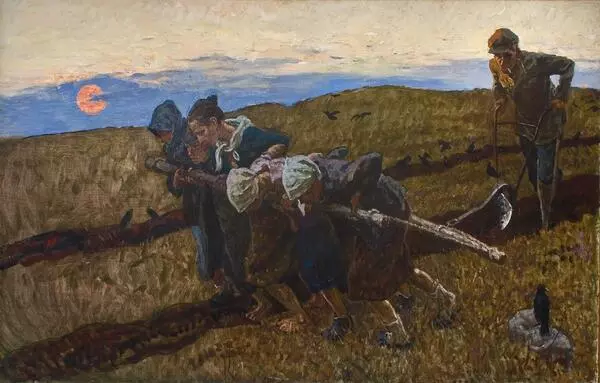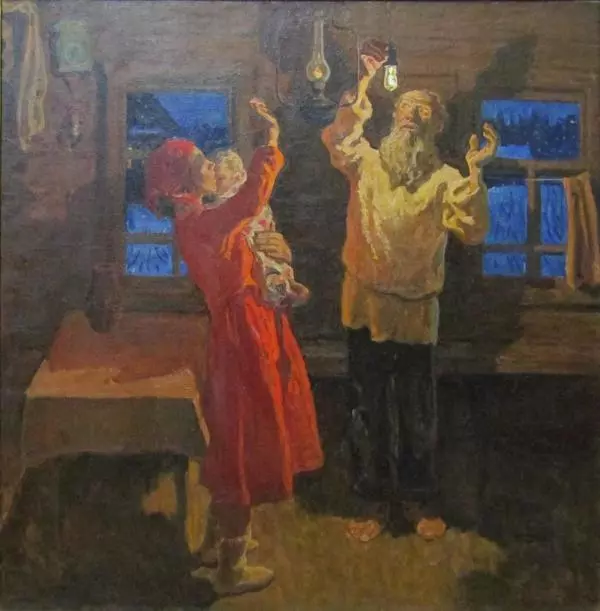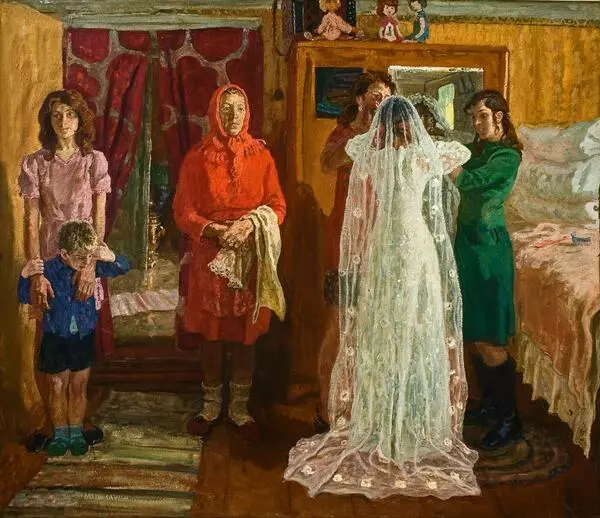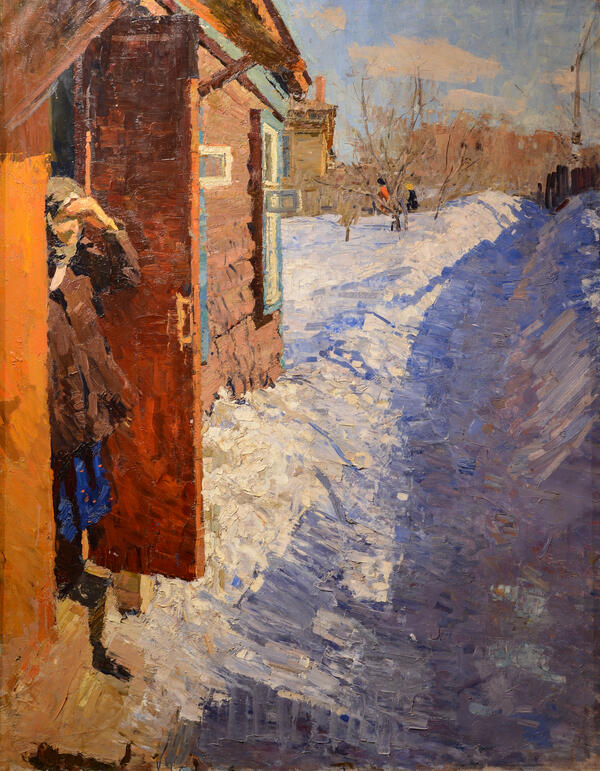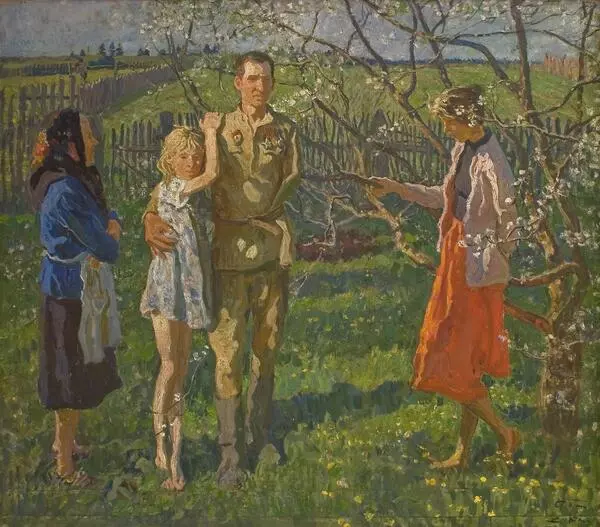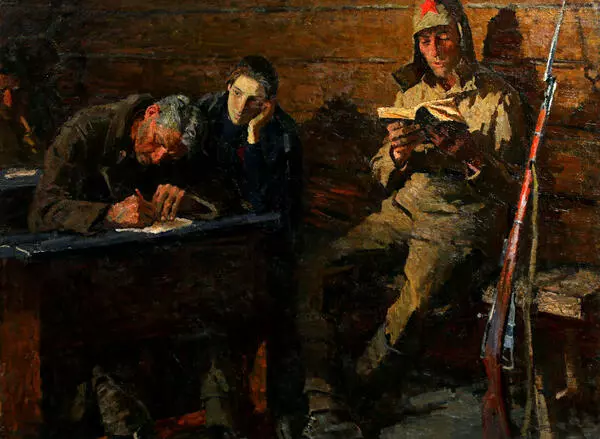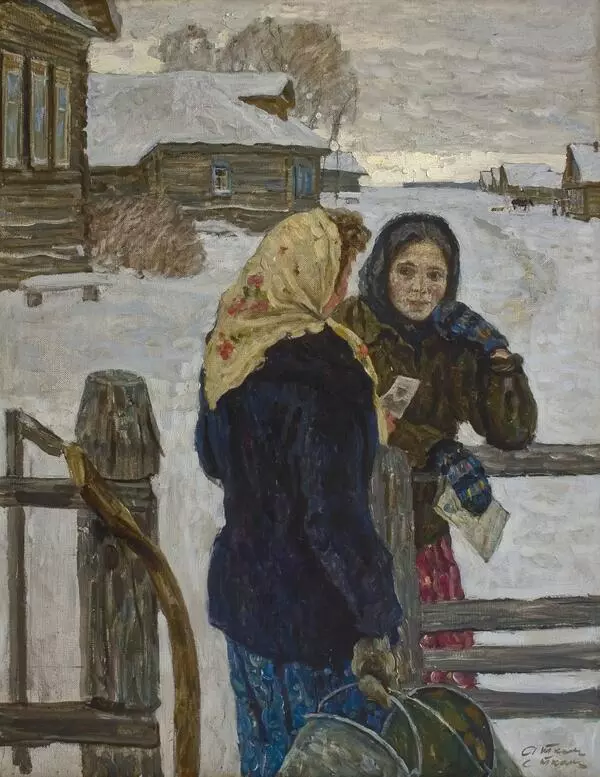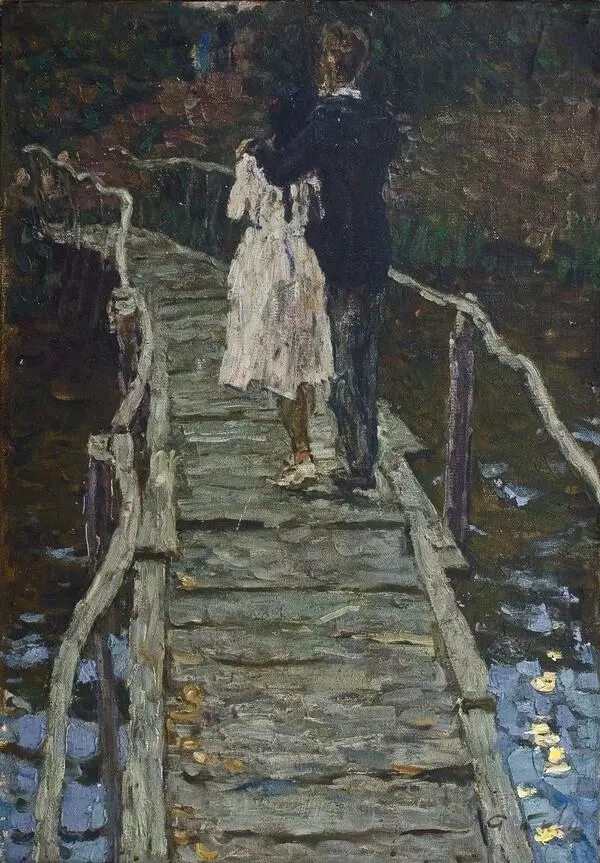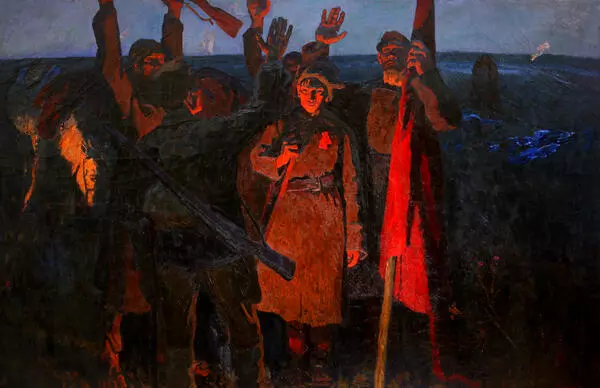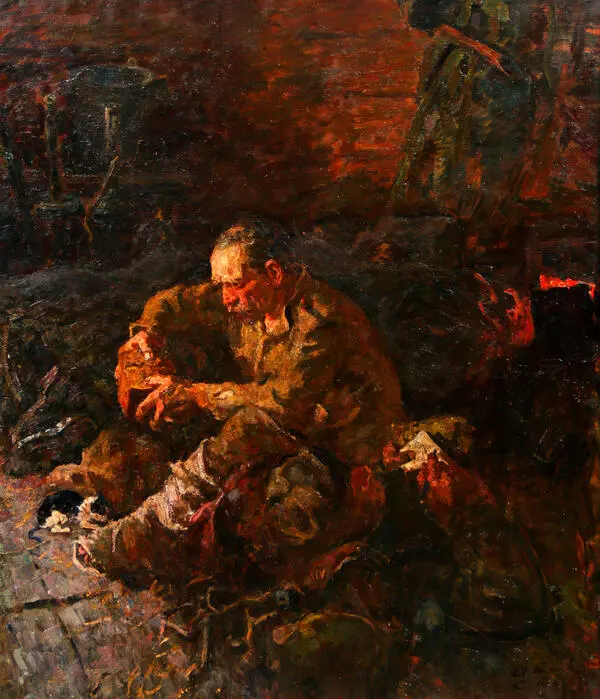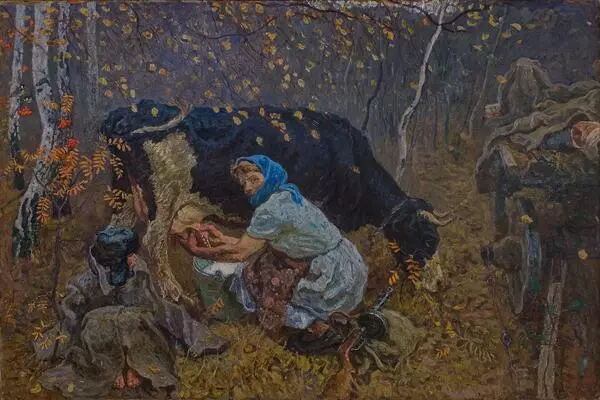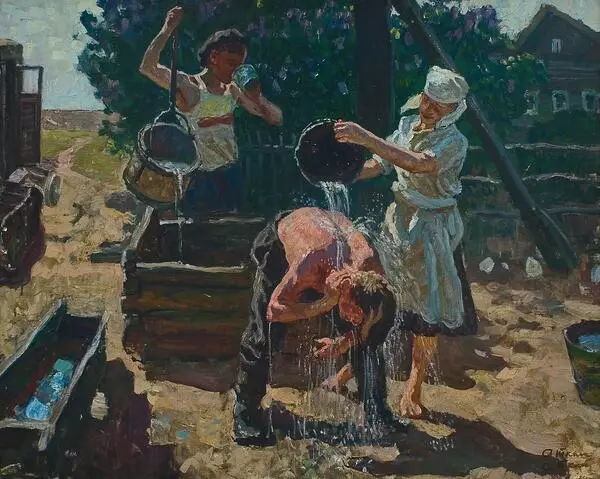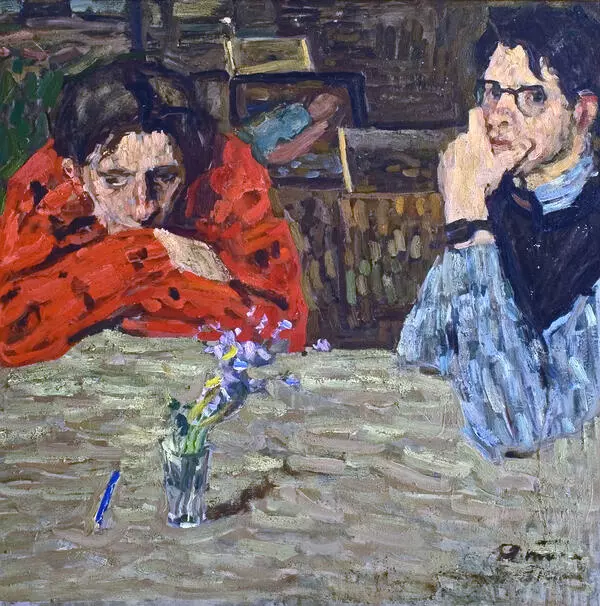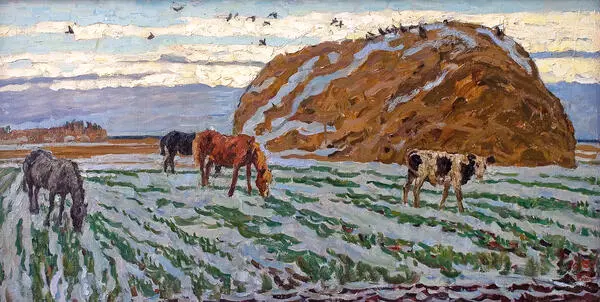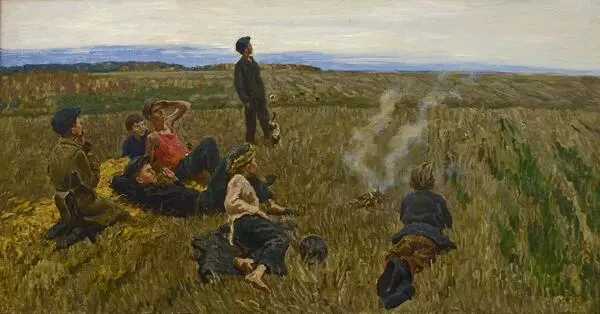Alexei and Sergei Tkachyov worked on ‘The Final Blessing’ in 1976. It depicts a scene of farewell, between a mother and her son, who is departing to fight in the war. The woman blesses the soldier, anointing him with a cross. The young man has already changed into his uniform and is holding his belt firmly. A Shpagin submachine gun (usually known as a PPSh) hangs from his belt. This weapon was widely used during the Great Patriotic War.
Mass mobilization was a tragic moment for millions of families. Women saw their sons and husbands depart for the front line. Children said goodbye to their fathers and brothers. Many of them never saw each other again. The artists’ family did not escape this horrific experience. As the brothers recall, the fight against fascism took three of their family away: Seraphim - the eldest brother, Vasiliy - the youngest brother and Sergei Tkachyov himself.
Seraphim Tkachyov never returned home from the war. As it happened, he came to the frontline from a camp, which he had been in since before the Great Patriotic War after denunciation. He fought in a battalion of offenders as part of the cavalry, and then became wounded. After being hospitalized, he returned to the ranks and died before the liberation of Belarus in 1944. The youngest brother, Vasiliy Tkachyov, served as a mechanic at a airbase from 1944 onwards, where he got contusion.
Sergei Tkachyov went to the front as a volunteer. In the summer of 1942, he finished infantry training and then served in the 21st guards division. After recovering from a shoulder injury, he then returned to the front and served until its demobilization in mid-November 1945. He never forgot about his craft during the war - he painted portraits of his comrades on sheets of paper. The soldiers folded them into triangles and sending them home in the post. One day, his comrades brought him some paints captured from the Germans. He used them to paint the famous study ‘The Frontline Shoemaker’ in 1944.
In ‘The Final Blessing’, the very pain that the Tkachyov brothers felt personally is reflected. In this work, they unify two of the most important themes of their craft - that of the Great Patriotic War and that of the difficult fate awaiting women and mothers, whose hearts are always filled with love for their children and anxiety for their safety.
Mass mobilization was a tragic moment for millions of families. Women saw their sons and husbands depart for the front line. Children said goodbye to their fathers and brothers. Many of them never saw each other again. The artists’ family did not escape this horrific experience. As the brothers recall, the fight against fascism took three of their family away: Seraphim - the eldest brother, Vasiliy - the youngest brother and Sergei Tkachyov himself.
Seraphim Tkachyov never returned home from the war. As it happened, he came to the frontline from a camp, which he had been in since before the Great Patriotic War after denunciation. He fought in a battalion of offenders as part of the cavalry, and then became wounded. After being hospitalized, he returned to the ranks and died before the liberation of Belarus in 1944. The youngest brother, Vasiliy Tkachyov, served as a mechanic at a airbase from 1944 onwards, where he got contusion.
Sergei Tkachyov went to the front as a volunteer. In the summer of 1942, he finished infantry training and then served in the 21st guards division. After recovering from a shoulder injury, he then returned to the front and served until its demobilization in mid-November 1945. He never forgot about his craft during the war - he painted portraits of his comrades on sheets of paper. The soldiers folded them into triangles and sending them home in the post. One day, his comrades brought him some paints captured from the Germans. He used them to paint the famous study ‘The Frontline Shoemaker’ in 1944.
In ‘The Final Blessing’, the very pain that the Tkachyov brothers felt personally is reflected. In this work, they unify two of the most important themes of their craft - that of the Great Patriotic War and that of the difficult fate awaiting women and mothers, whose hearts are always filled with love for their children and anxiety for their safety.
